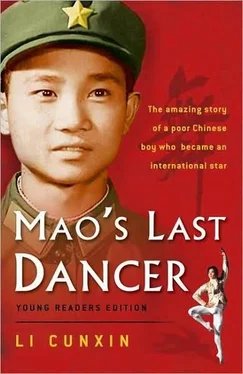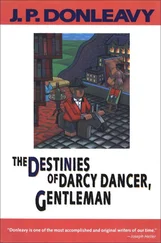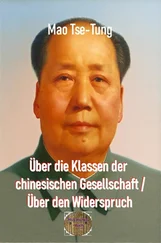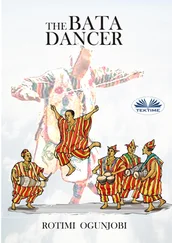Sien Yu's mother nodded.
"I'm sorry, I think my son has stolen your son's toy car," my niang said.
"Don't get upset," Sien Yu's mother replied. "Your son is too young to understand."
"I'm ashamed, I'm ashamed of what my son did!" said my niang, and apologised profusely. She tried to make me do the same, but I felt too embarrassed and refused, and wished I had never seen that toy car. I wished for a hole in which to hide. I wished for thick skin to cover my face. I felt the blood rushing to my neck. I tried to escape from my niang's firm grip. I wanted to run away and never come near Sien Yu's house again. I hated my niang for embarrassing me like this. She shouted. She wanted the entire world to know I had stolen my friend's toy car. I screamed and kicked as she dragged me home. "I want a car! I want a car!" I yelled.
As soon as we went inside our house, with despair in her eyes, she pulled me to her chest, hugged me tightly in her arms and sobbed. It was as though she had suffered as much humiliation as I had. "I'm so sorry to do this to you," she whispered tenderly. "I'm so sorry we are too poor to buy you a toy car." After a brief moment she continued. "I'm too stupid to have all of you in this cruel world! You don't deserve this suffering!" I felt her tears streaming onto my hair. "We are too poor! The gods in heaven won't answer our prayers, and even the devil below has abandoned us. We are born with a hopeless fate," she sighed.
"Stop saying that! Don't say anything!" I begged her. I hated to see her so sad.
She continued as though she hadn't heard me. "How I wish I had the money to buy you a toy car! But we don't even have enough money for food."
"I'll have enough food for you one day! I swear!" I said to myself.
She hugged me tighter as she sobbed. I didn't know how long she hugged me but I didn't want her to stop.
That evening, at dinner, after she had told everyone what I had done, my dia started lecturing us. "Although we have no money, no food, and can't buy clothes, and although we live in a poor house, one thing we do have is PRIDE. Pride is the most precious thing in our lives. Throughout our forefather's struggles, the Li family always had our pride and dignity. We have always had a good reputation. I want every one of you to remember this: never lose your pride and dignity no matter how hard life is."
Memories of my niang and my dia are always related to how hard they both worked. Our dia was often up before five-thirty in the morning, which meant my niang had to be up even earlier to cook him breakfast. With all the cooking, washing and sewing she had to do, she hardly had time or energy to pay each of us much attention. We all fought over her love and affection, and she was constantly exhausted. She cooked every meal, made all our clothes for every season and made all our quilts and blankets too. She carried the laundry either to the stream about twenty minutes south of our house or to a dam about half an hour away up on the Northern Hill. The stream often had little water in summer, and our big clay water-pot would be covered with ice in the winter. Yet she had no alternative for washing the dishes and clothes.
We always had to be extra careful that we didn't run out of coal for cooking and heating in the middle of winter. There was a great shortage of black coal throughout China so we never had enough, not even half-burnt coal, to heat the water for my niang's huge amounts of washing. Each family was apportioned a small quota of black coal on strict rations, but we only used it to ignite the half-burnt coal, which looked like little pieces of grey sponge. This coal had already been burnt once by factories or power stations, and if we saw some on the side of the road or in the garbage we would pick it up and take it home. Half-burnt coal was very hard to light. It needed black coal to keep it burning. Using the windbox, my niang first lit some dried grass, which was gathered and stacked during summer. Sometimes it could take up to fifteen minutes to light the fire. On windy days, the smoke from my niang's cooking would fill the house and we would all wake up in the morning coughing.
The small amount of black coal that was allocated to us we would try to keep for winter heating. The temperature in Qing-dao could go as low as minus fifteen degrees Celsius, and often the inside of our house felt colder than the outside. We'd mix the black coal with some dirt to make it last longer. Even heating up some water for the washing was a luxury for my niang. But our patched clothes were always clean. She took immense pride in making her seven sons look well cared for.
Every aspect of life was hard for my parents. We even had to sleep in the same bed. Jing Tring and I slept with them until I was eleven. All four of us, head-to-toe. I hated my brother's smelly feet right by my face and he must have hated me more since I was taller than he was. Sometimes he'd end up on my side of the kang with the quilt all to himself, and I'd have to grab the quilt back. But I loved sleeping with my parents. It felt so safe. I often wondered why my niang always looked for her hairpins on my dia's side in the mornings and imagined what they were up to while we were asleep. So often I tried to pretend that
I was asleep in order to find out their secrets, but I never managed to stay awake.
I rarely saw a smile from my niang, but when I did, my heart would blossom like a lotus flower. I would have given anything to make her smile. Occasionally, in my naïve way, I tried to cheer her up with stories. When I was only little, my second brother had done some jobs for someone in the village and he'd paid my brother with a young goat. We put all our prayers into that goat, hoping that when she grew up she might produce some milk for us which we could sell for cash. I loved that goat. I took her anywhere I could to feed her grass and I brought grass home for her every day.
As I passed our main bedroom window one day, I overheard one of my niang's friends telling her, "I heard there is a rare and special goat that will sneeze out a worm sometimes. This worm can cure some rare diseases. The government in Beijing would pay a lot of money for it!"
Not long after, as I was going to take the goat to eat some grass before sunset, my niang said, "Just look at this skinny goat! Do you think anyone in their right mind would give away a milk- producing goat?" I knew she was in despair over our shortage of food that day, and she was short-tempered. I tried to think of something that would cheer her up and suddenly remembered her friend's tale about the goat.
I put on my best innocent face. "Niang, I saw our little goat sneeze out a worm the other day."
She looked alarmed, and asked me excitedly, "What does the worm look like?"
"A whitish caterpillar about the size of my finger." I stuck out my second finger.
"What happened to the worm?" she asked eagerly.
"The goat ate it very quickly," I replied casually.
"Next time when she sneezes out the worm you must pull the goat away from it and try to capture it. This kind of worm is worth a lot of money!" She became happier then, and seemed to dream. "Maybe this is our saviour goat," she murmured to herself, and she would forget about her despair for a while.
But one day I told the same story once too often and she realised I had been making it up all along. "Get lost! Don't think you can fool me again!"
What a shame, I thought. Now I would have to think of a cleverer tale to cheer her up.
And the goat? She eventually died, from starvation, the following winter.
My niang was also recognised as one of the best seamstresses in the village. Sewing was one of the most important pastimes for the ladies. My parents simply had no money to buy ready-made clothes, and my niang didn't have a sewing machine. So the older ladies would teach the younger ones, and they often gathered together as a sewing group in our small, crowded house, even though they knew we were very poor, to share their secrets, drink tea and gossip. The women of the village loved to come and share their happiness or their problems with my niang, and her sewing skill was admired by many. Her stitches looked as if they were made by a sewing machine-small and perfect. Once she was asked by a friend to redo some machine-sewn zippers because he preferred my niang's delicate stitchwork.
Читать дальше












